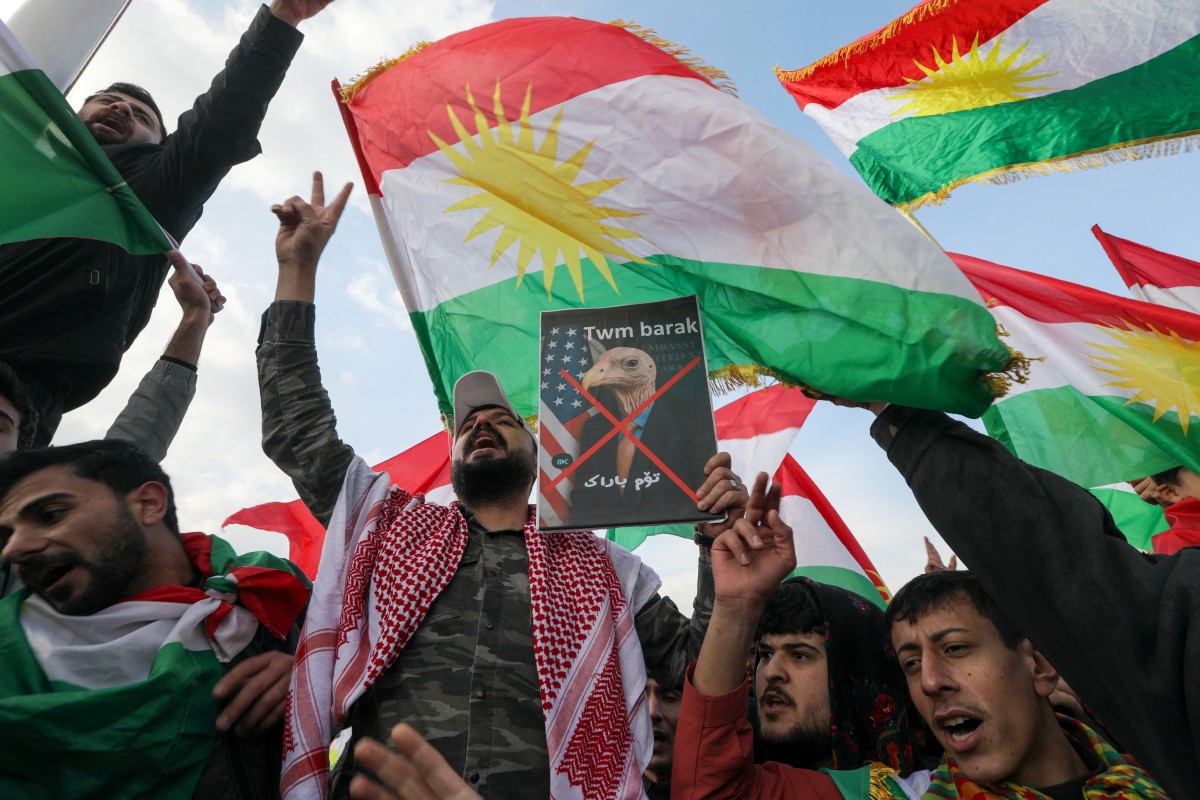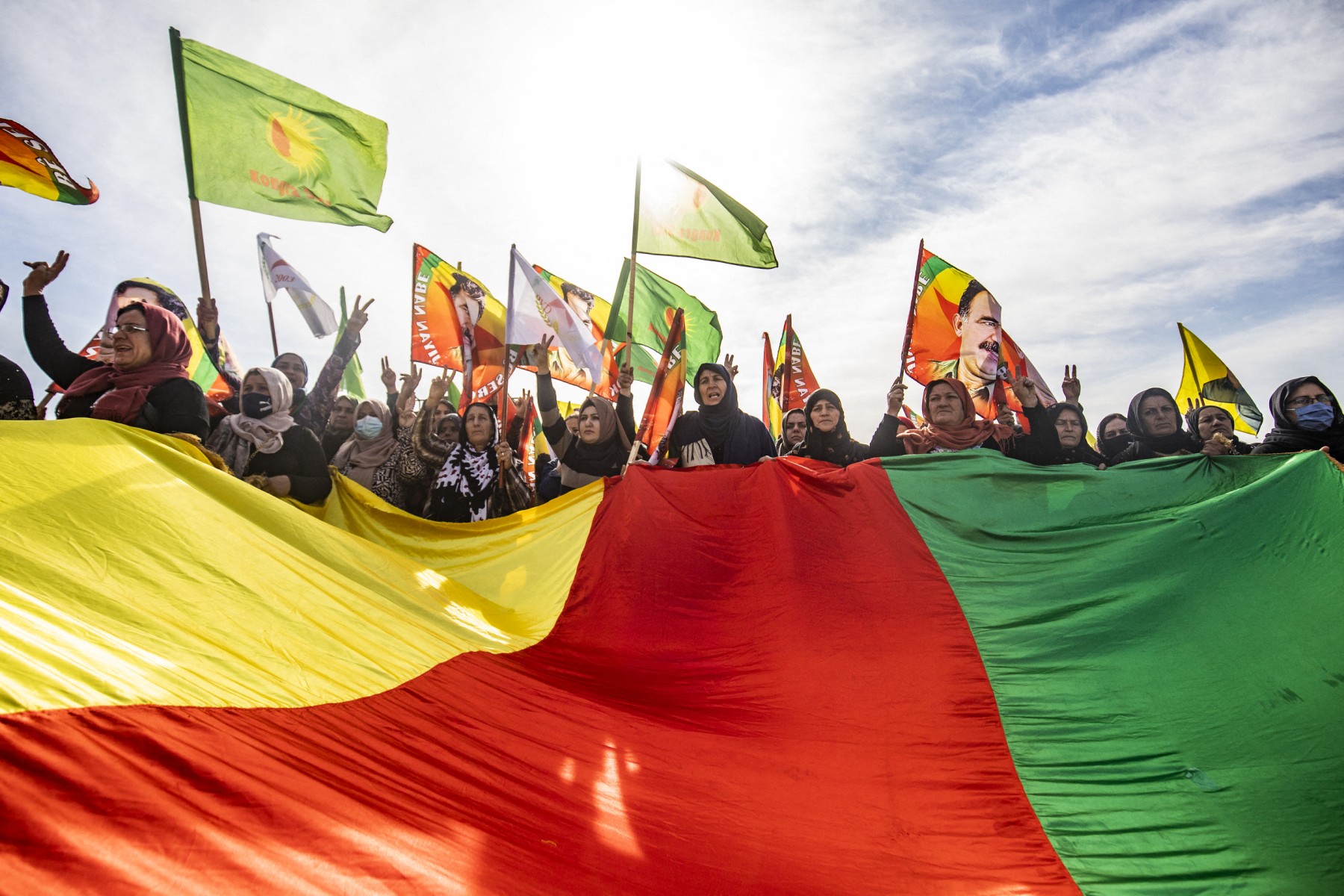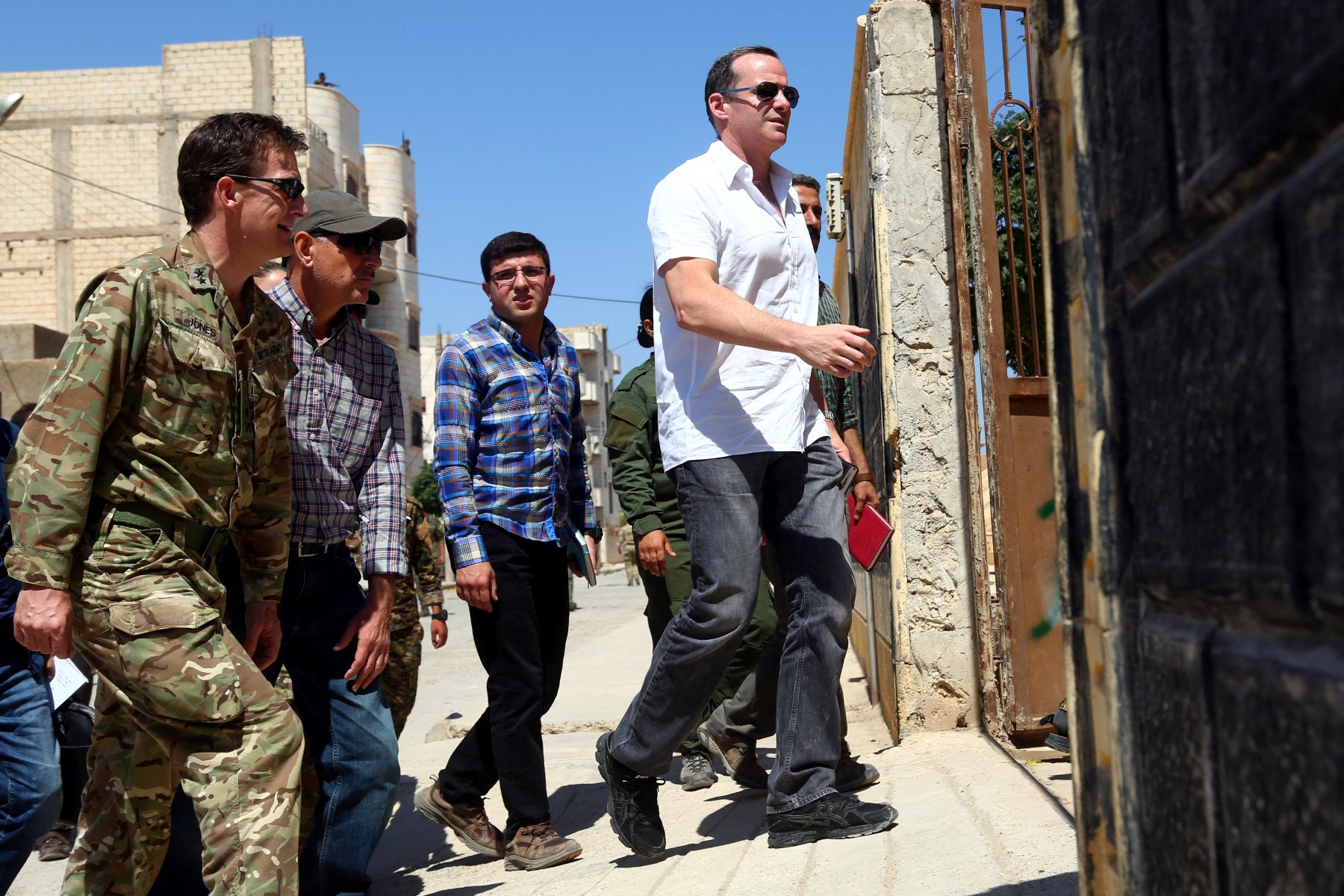The ‘Age of Danger’ Is Here – But Do Iraq’s Kurdish Elites Know It?
Across the globe, we are entering what historians may one day call another Age of Danger – an era marked by elite disarray, collapsing trust in institutions, economic precarity, and thxe rise of authoritarian populism. In this climate, people are increasingly abandoning faith in political solutions and turning instead to direct economic action: strikes, rent protests, emigration, and informal economies.
Populists Promise Peace – But Deliver Division
In such conditions, populist leaders flourish; not because they offer real solutions, but because they present themselves as anti-elite champions of the people. They promise peace, order, and prosperity. But almost always, they deliver the opposite.
This pattern is global. Donald Trump in the United States claimed he would end “forever wars” and drain the swamp – yet expanded drone warfare, gutted institutions, and polarised society. Nigel Farage in the UK offered a peaceful Brexit, yet left Britain with deep social fragmentation and no clear economic direction. Giorgia Meloni in Italy now speaks in calmer tones, but built her rise on ultra-nationalist, anti-immigrant rhetoric.
Beyond the West, the trend is even more telling. Recep Tayyip Erdoğan in Turkey began as a reformist, but now presides over an increasingly authoritarian state marked by censorship, economic instability, and militarism. In India, Narendra Modi fuses Hindu nationalism with technocratic modernism, eroding democratic institutions while claiming to speak for the ‘real’ India. In Latin America, Javier Milei promises liberty while slashing state services, deepening inequality and institutional crises. Jair Bolsonaro in Brazil, Kais Saied in Tunisia, and Rodrigo Duterte in the Philippines all promised stability but governed through repression, corruption, and division.
These leaders are not outliers. They are symptoms of a deeper global unravelling— a breakdown of the elite consensus that capitalism, democracy, and security can be managed from the top. In its place, populism offers spectacle, tribalism, and strongman theatrics, until the institutions holding everything together begin to fracture.
Kurdistan’s Political Class: From Liberation to Entrenchment
The signs are unmistakable. The Kurdistan Democratic Party (KDP) and the Patriotic Union of Kurdistan (PUK) still deploy nationalist-populist narratives, positioning themselves as defenders of Kurdish identity against outside threats
The question is do Kurdish elites, particularly in Iraq’s Kurdistan Region, recognise that they, too, are living through this Age of Danger?
The signs are unmistakable. The Kurdistan Democratic Party (KDP) and the Patriotic Union of Kurdistan (PUK) still deploy nationalist-populist narratives, positioning themselves as defenders of Kurdish identity against outside threats from Baghdad, Turkey, Iran, or the ISIS. But within their own territory, they govern through authoritarian patronage, suppress dissent, centralise wealth, and silence the press. Public institutions are hollowed out, elections are symbolic, and civil society remains weak. Meanwhile, jobs and services depend not on merit, but on party loyalty.
These elites rose on the back of real grievances – first against Saddam Hussein’s repression, later against the existential threat of extremist violence. But over time, they have shifted from liberators to gatekeepers of privilege, from revolutionary to reactionary, and now, the cracks are widening.
Fleeing the Homeland: How Misrule Fuels a Refugee Crisis
Nowhere is this clearer than in the mass exodus of Kurdish youth and professionals, who are fleeing not war, but elite misrule, nepotism, and corruption leading to joblessness, unpaid wages, and sheer lack of hope. This wave of migration is not only a local tragedy; it is also contributing to the global refugee and displacement crisis. Kurdish towns and cities, especially Slemani (Sulaymaniyah) and Duhok, are being drained of their most ambitious, educated, and capable people. If even the middle class sees no future under the current order, what legitimacy remains?
A History of Danger and Resistance – But Also Repetition
This is not the first time Kurdish politics has unfolded during an Age of Danger. After the fall of the Ottoman Empire, Sheikh Mahmud Barzanji declared a short-lived Kingdom of Kurdistan, blending religious authority and tribal populism with anti-colonial nationalism. In the mid-20th century, Mullah Mustafa Barzani and later Jalal Talabani mobilised Kurdish identity into armed struggle and party politics. These movements often began as liberation projects – but quickly became enmeshed in elite competition, external alliances, and authoritarian tendencies.
Kurdish history mirrors global trends: resistance becomes regime; populism becomes elite capture; and liberation becomes a mechanism of control. But the current Age of Danger is more volatile than previous ones and, in this era, more global. The institutions that once absorbed political pressure – parliaments, parties, courts, media – are now often part of the problem. And when people lose faith in those institutions, they either revolt or flee.
After the 1991 Gulf War, the Kurds gained de facto autonomy. But even then, the KDP and PUK fell into civil war, accusing each other of betrayal while masking corruption and power struggles in populist rhetoric.
After the 1991 Gulf War, the Kurds gained de facto autonomy. But even then, the KDP and PUK fell into civil war, accusing each other of betrayal while masking corruption and power struggles in populist rhetoric. The post-2003 era brought further entrenchment. In 2017, Masoud Barzani cast the independence referendum as a bold nationalist project – but it ultimately led to the loss of Kirkuk and worsened an economic crisis. It was, many argue, a populist distraction from the deeper failures of governance.
Kurdish history mirrors global trends: resistance becomes regime; populism becomes elite capture; and liberation becomes a mechanism of control.
Kurdish history mirrors global trends: resistance becomes regime; populism becomes elite capture; and liberation becomes a mechanism of control. But the current Age of Danger is more volatile than previous ones and, in this era, more global. The institutions that once absorbed political pressure – parliaments, parties, courts, media – are now often part of the problem. And when people lose faith in those institutions, they either revolt or flee.
Lessons from the Past: Reform or Rupture
When the world last went through such a moment – in the 1930s – liberal democracies collapsed, fascists rose, and a world war followed. It took catastrophic destruction to produce a new world order, and a new elite consensus. Leaders like Franklin D. Roosevelt, John Maynard Keynes, and George C. Marshall responded not with repression, but with radical rethinking. Roosevelt’s New Deal and the Social Security Act embedded welfare into capitalism. Keynes helped design the IMF and World Bank to stabilise global finance. Marshall rebuilt Europe through aid, not austerity.
Will Kurdish Elites Wake Up Before It’s Too Late?
Today, Kurdish elites face a similar fork in the road. They can double down on surveillance, patronage, and empty slogans, or they can begin the hard, honest work of reform: devolving power, restoring rule of law, creating a fair economy, and opening political space to the people they claim to represent.
Because if they don’t, collapse will not come from Baghdad or Ankara. It will come from within. From the families who dream of Europe, not Erbil. From the students who no longer believe in institutions. From the journalists forced to flee. From a generation that feels betrayed.
The Age of Danger is already here. The only question is: will Kurdish elites wake up before it’s too late?
Bamo Nouri
Bamo Nouri is an award-winning senior lecturer in International Relations at the University of West London, an Honorary Research Fellow at City St George’s, University of London, and a One Young World Ambassador. He is also an independent investigative journalist and writer with interests in American foreign policy and the international and domestic politics of the Middle East. He is the author of Elite Theory and the 2003 Iraq Occupation by the United States.



